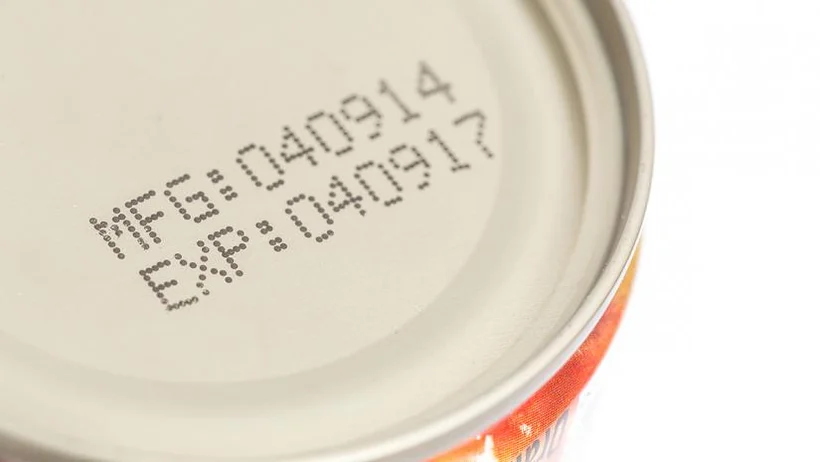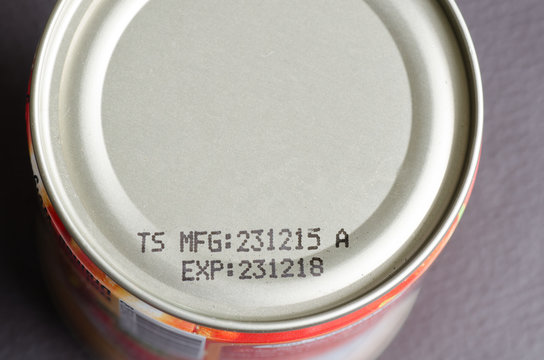Expiration dates are everywhere on food packaging, but many people, like my nana, treat them as mere suggestions rather than strict rules. While some argue that these dates are essential, others ignore them altogether, believing food is fine long after the date has passed. So, what’s the truth? Should expiration dates be taken seriously when it comes to food safety, or can they be safely disregarded? Let’s dive into the science, common misconceptions, and expert advice to find out.
What Do Expiration Dates Really Mean?

If you’ve ever stared at a can of beans or a carton of milk and wondered whether the expiration date really matters, you’re not alone. The reality is, expiration dates aren’t as straightforward as they seem. While they do indicate when food is at its peak in terms of quality—flavor, texture, and nutritional value—they don’t always signal when food becomes unsafe to eat.
In fact, many foods can still be safe to consume after the expiration date if stored correctly. So, rather than thinking of these dates as a “hard stop,” consider them as an indicator of when a food will be at its best, not necessarily when it becomes dangerous.
‘Best Before’ vs. ‘Use By’ Dates: What’s the Difference?
You’ve probably noticed that not all expiration dates are the same. Some products have a ‘Best Before’ date, while others have a ‘Use By’ date. These labels are not interchangeable and carry different meanings.
- Best Before Dates: These dates primarily concern food quality, not safety. A “Best Before” date tells you when the product will taste its best or be at its highest nutritional value. However, many foods, such as canned goods or dry pasta, are perfectly safe to eat long after this date has passed, as long as they’ve been stored properly.
- Use By Dates: These dates are far more critical, especially for perishable items like meat, dairy, and ready-to-eat meals. After the “Use By” date, the risk of foodborne illness increases as harmful bacteria, like Salmonella or Listeria, can begin to grow. For these foods, it’s wise to stick to the “Use By” date to ensure safety.
The Science of Food Spoilage and Safety
Food spoilage occurs when bacteria, mold, and yeast grow on the food, causing it to change in smell, color, and texture. While some types of spoilage are visible, others are not. Harmful bacteria like E. coli or Salmonella can thrive in food even if it doesn’t show any obvious signs of spoilage.
For instance, meat, dairy, and fish can still harbor dangerous pathogens even if they look, smell, or taste fine. This is why it’s so important to follow the “Use By” date for these items, as their risk of contamination increases after that time.
Common Misconceptions About Expiration Dates
Many people believe that food becomes unsafe the moment it passes the expiration date, but this isn’t always true. In fact, many non-perishable items, like canned goods, pasta, and grains, can last months or even years after their expiration date—provided they’ve been stored properly.
The idea that all foods carry the same risk after their expiration date is another misconception. While perishable items, such as meat and dairy, are highly susceptible to harmful bacteria, items like canned vegetables and dry pasta can often be consumed safely long after the printed date.
The Role of Expiration Dates in Food Quality and Safety

Expiration dates play an important role in helping consumers assess the freshness and quality of food. However, they are not foolproof indicators of when food becomes unsafe. Factors like how food is stored, its handling, and the environment it’s kept in (e.g., temperature and humidity) can all impact its shelf life.
For instance, while a jar of peanut butter may be safe to eat months after its “Best Before” date, the same is not true for a carton of milk. Milk, even if unopened, can spoil quickly if not stored at the correct temperature. So, while expiration dates are helpful, they should not be the only factor you rely on when assessing food safety.
Evaluating the Risks of Eating Expired Food
So, is it truly dangerous to eat food after the expiration date? The risks depend on several factors:
- Type of Food: Non-perishable foods like canned goods, grains, and dried pasta can stay safe well beyond their expiration dates, especially if stored in a cool, dry place. But perishable foods, such as meat, fish, and dairy, are more likely to spoil after their “Use By” dates.
- Storage Conditions: Proper storage is critical. Refrigeration or freezing can extend the shelf life of perishable foods. However, if these foods have been left out of the fridge for too long, they could be unsafe to eat, regardless of the date on the label.
- Sensory Checks: A simple sniff test or visual inspection can go a long way in determining if food is still safe to eat. If food looks discolored, smells sour, or has an off texture, it’s better to throw it out than risk foodborne illness.
Expert Opinions on Expiration Dates and Food Consumption

Experts agree that expiration dates are useful as general guidelines, but they should not be treated as strict rules. According to food safety professionals, it’s essential to rely on common sense and sensory evaluation when determining if food is safe to eat. Storing food at the proper temperature and inspecting it for visible signs of spoilage can often help you assess whether the food is still good, even after the expiration date has passed.
Personal Experiences: When Expiration Dates Are Ignored
Many people, like my nana, have consumed food past its expiration date without experiencing any negative effects. These personal experiences often lead people to believe that expiration dates are overly cautious. However, it’s important to remember that everyone’s experience may be different. While some may get away with eating expired food, others may not be so lucky.
Health conditions, immune system strength, and food handling practices can all influence how food affects an individual. So, while one person may feel fine after eating expired food, others may be more susceptible to foodborne illnesses.
Guidelines for Safely Consuming Food Past Expiration Dates
If you’re considering eating food past its expiration date, here are some essential tips:
- Check the Type of Food: Non-perishable items like canned goods, pasta, and rice are usually fine if stored correctly. But perishable items like dairy, meat, and fish should be consumed with caution after their “Use By” dates.
- Use Sensory Evaluation: Always inspect the food’s smell, texture, and appearance. If it seems off in any way, discard it.
- Consider Storage Conditions: Make sure your fridge or pantry is at the proper temperature. Foods that are well-sealed and stored in the right conditions will last longer.
- When in Doubt, Throw It Out: If you’re unsure whether a food item is safe, it’s better to be cautious and discard it than risk foodborne illness.
Conclusion: Are Expiration Dates Just Guidelines or Essential Warnings?
In conclusion, expiration dates are important but should be treated as guidelines rather than strict rules. While they help ensure food quality and nutritional value, they are not foolproof indicators of safety. By considering the type of food, how it’s been stored, and using common sense, you can make safer, smarter decisions about whether food is still good after its expiration date. Balancing expiration dates with practical food safety knowledge will allow you to enjoy your meals with peace of mind.


